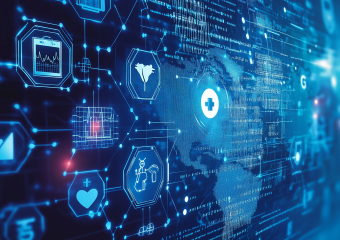AI Revolutionizes Precision Medicine with Stunning Breakthroughs
From Genome to Diagnosis: How AI Is Accelerating Precision Medicine
Precision Medicine: A New Era in Healthcare
Precision medicine is ushering in a new era in healthcare, transforming patient care from a one-size-fits-all approach to one tailored to the genetic makeup of each individual. By leveraging the massive amounts of data generated through genomics, healthcare providers can now predict more accurately which treatment and prevention strategies for a particular disease will work in which groups of people. This is a big step from the traditional reactive medicine to a more proactive and personalized approach.
The Role of Artificial Intelligence in Precision Medicine
Artificial intelligence (AI) stands at the forefront of this revolutionary shift. AI’s capability to analyze large datasets quickly and with precision enhances the ability of scientists and doctors to understand complex genetic information, which speeds up the diagnosis and treatment processes dramatically.
One of the key advantages of AI in this field is its ability to learn and adapt over time. Machine learning algorithms can sift through data from genomic sequencing, electronic health records (EHR), and published research to identify patterns and insights that would be impossible for human researchers to find on their own. This not only accelerates the research phase but also enhances the accuracy of the diagnostics.
Integrating Genomic Data for Enhanced Diagnosis
Genomic data is extraordinarily complex and extensive. Each human genome consists of over three billion DNA base pairs. Analyzing such vast amounts of data manually is not only time-consuming but also prone to errors. AI systems can handle these large datasets efficiently, extracting relevant genetic markers and mutations that are significant for diagnosing specific conditions.
Moreover, AI can integrate genomic data with other types of health data, including lifestyle and environmental factors, to provide a comprehensive view of a patient’s health status. This holistic approach is critical in precision medicine, as it allows for treatments to be customized not just to the genetic details but also to the individual’s unique environmental and lifestyle contexts.
Predictive Analytics in Preventive Care
Predictive analytics is another area where AI excels in precision medicine. By analyzing patterns in the data, AI can predict the onset of diseases before they manifest clinically. This predictive capability is invaluable, as it allows for early intervention strategies that can prevent a disease from developing or reduce its impact significantly.
For instance, AI tools are being used to predict cancer susceptibility and progression by analyzing changes in gene expression levels. Similarly, in cardiovascular diseases, AI models help predict heart attacks and strokes by analyzing EHR, genetic markers, and even real-time data from wearable devices.
Challenges and Ethical Considerations
Despite its numerous benefits, the integration of AI in precision medicine does face challenges. High on this list is the issue of data privacy and security. Handling sensitive genetic information requires robust security measures to prevent data breaches and ensure patient privacy.
Furthermore, there are ethical considerations about how the data is used and who has access to it. Discrimination based on genetic information, unintentional biases in AI algorithms, and the potential for socioeconomic disparities in access to precision medicine are significant concerns that need addressing as this technology evolves.
The Future of AI in Precision Medicine
The future of AI in precision medicine looks promising. As technology advances and we understand more about the human genome, AI’s role in healthcare will only grow deeper and more integral. Simultaneously, ongoing research into AI ethics and data security is crucial to ensure that the benefits of AI in precision medicine are realized fully and fairly.
In sum, AI not only accelerates the analysis of genomic data but also enhances the accuracy and efficacy of diagnosis, treatment, and preventive care in healthcare. As we look forward, the synergy between AI and precision medicine holds the potential to revolutionize patient care by making it as personalized and proactive as possible. This integration marks a significant leap forward toward a future where healthcare is tailored to the unique genetic blueprint of each individual, paving the way for improved outcomes and healthier lives.








